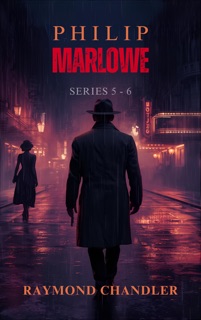In The Little Sister and The Long Goodbye, Raymond Chandler deepens Philip Marlowe’s role as a disillusioned yet steadfast detective, struggling to maintain integrity amid a decaying Los Angeles.
In The Little Sister, Marlowe is hired by a naïve young woman from Kansas looking for her missing brother. Her search drags Marlowe into Hollywood’s underbelly of gangsters, blackmail, and murder. The bright lights of the film industry conceal a sordid world of exploitation and greed. Cynical but relentless, Marlowe exposes the rot beneath glamour, reflecting postwar America’s moral disillusionment.
The Long Goodbye is Chandler’s masterpiece—a darker, more introspective tale of loyalty and betrayal. Marlowe befriends the alcoholic writer Terry Lennox, who later flees after his wife’s murder. When Lennox dies in Mexico, Marlowe refuses to accept the official story and uncovers a conspiracy involving wealth, corruption, and moral decay.
Both novels reveal Marlowe’s loneliness and decency in a world where truth has little value. Chandler’s elegiac prose transforms the hardboiled genre into literature—poetic, tragic, and profoundly human—showing a detective who clings to honor even as the world around him falls apart.



















































